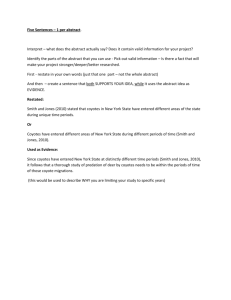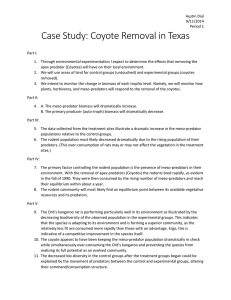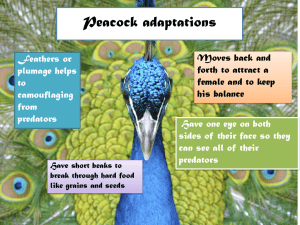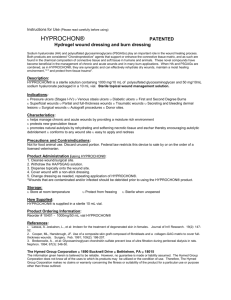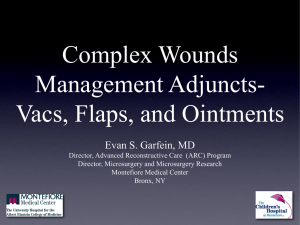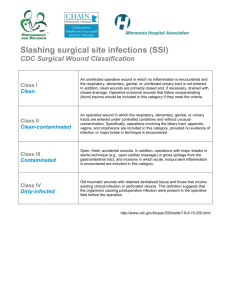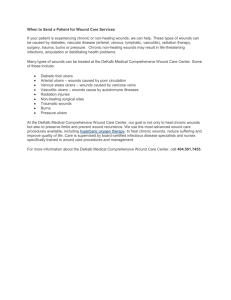Ask A Vet: Dogs with Bloat are a Serious Emergency
advertisement
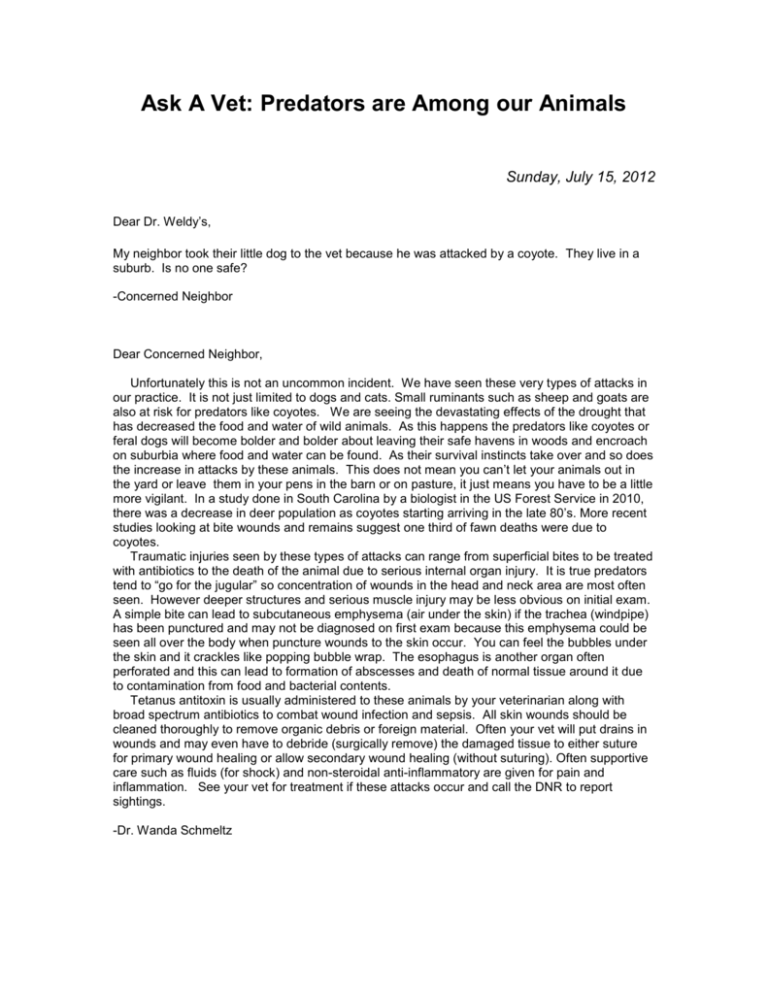
Ask A Vet: Predators are Among our Animals Sunday, July 15, 2012 Dear Dr. Weldy’s, My neighbor took their little dog to the vet because he was attacked by a coyote. They live in a suburb. Is no one safe? -Concerned Neighbor Dear Concerned Neighbor, Unfortunately this is not an uncommon incident. We have seen these very types of attacks in our practice. It is not just limited to dogs and cats. Small ruminants such as sheep and goats are also at risk for predators like coyotes. We are seeing the devastating effects of the drought that has decreased the food and water of wild animals. As this happens the predators like coyotes or feral dogs will become bolder and bolder about leaving their safe havens in woods and encroach on suburbia where food and water can be found. As their survival instincts take over and so does the increase in attacks by these animals. This does not mean you can’t let your animals out in the yard or leave them in your pens in the barn or on pasture, it just means you have to be a little more vigilant. In a study done in South Carolina by a biologist in the US Forest Service in 2010, there was a decrease in deer population as coyotes starting arriving in the late 80’s. More recent studies looking at bite wounds and remains suggest one third of fawn deaths were due to coyotes. Traumatic injuries seen by these types of attacks can range from superficial bites to be treated with antibiotics to the death of the animal due to serious internal organ injury. It is true predators tend to “go for the jugular” so concentration of wounds in the head and neck area are most often seen. However deeper structures and serious muscle injury may be less obvious on initial exam. A simple bite can lead to subcutaneous emphysema (air under the skin) if the trachea (windpipe) has been punctured and may not be diagnosed on first exam because this emphysema could be seen all over the body when puncture wounds to the skin occur. You can feel the bubbles under the skin and it crackles like popping bubble wrap. The esophagus is another organ often perforated and this can lead to formation of abscesses and death of normal tissue around it due to contamination from food and bacterial contents. Tetanus antitoxin is usually administered to these animals by your veterinarian along with broad spectrum antibiotics to combat wound infection and sepsis. All skin wounds should be cleaned thoroughly to remove organic debris or foreign material. Often your vet will put drains in wounds and may even have to debride (surgically remove) the damaged tissue to either suture for primary wound healing or allow secondary wound healing (without suturing). Often supportive care such as fluids (for shock) and non-steroidal anti-inflammatory are given for pain and inflammation. See your vet for treatment if these attacks occur and call the DNR to report sightings. -Dr. Wanda Schmeltz
